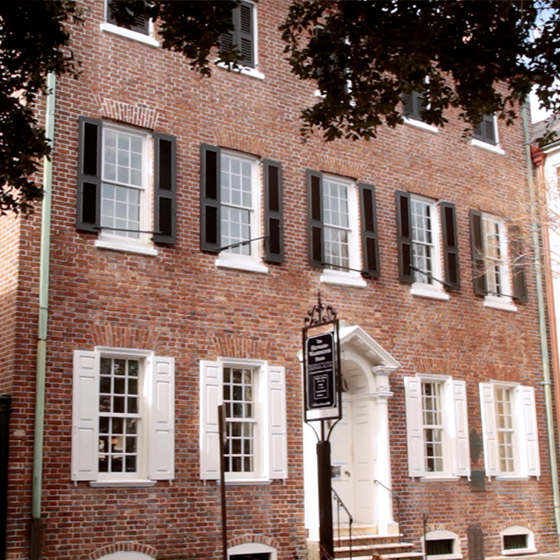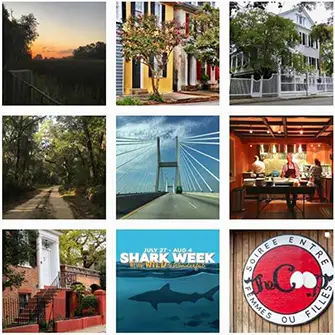
Heyward-Washington House at 87 Church: Part I
Part I - Thomas Heyward
We get a double portion of Founding Fathers with the Heyward-Washington House at 87 Church Street, as this building is associated with both Thomas Heyward, one of South Carolina's four signers of the Declaration of Independence, and George Washington, General of the American forces during the Revolutionary War and the first President of the United States.
In 1770, the rice planter Daniel Heyward bought the property at 87 Church Street and later sold it to his son Thomas. The property's existing house from 1740 was torn down, and in 1771, the Georgian-style house we see today was built. This house is a good example of a Charleston "double house," which is two rooms wide and two rooms deep with a central hallway, as opposed to a "single house," which is one room wide and two rooms deep (for an example of a single house, just look across at 90 Church Street).
Like his contemporaries John and Edward Rutledge, Thomas Heyward studied in England, returned to Charles Town to practice law, and became involved in politics. Like his father, Heyward was also a rice planter. He was living at 87 Church with his family when the British invaded Charleston in May of 1780 and placed Heyward under house arrest. On August 27, 1780, the British dragged him from 87 Church and imprisoned him in the Provost Dungeon under the Old Exchange Building with other prominent patriots, only to be shipped out to St. Augustine, Florida for the remainder of the war.
For the past several years, the Charleston Museum, along with the Powder Magazine and the Old Exchange, has sponsored a re-enactment of the "Taking of Thomas Heyward" on August 27. I attended two years ago along with a crowd of children and adults, some dressed in period clothing. We marched from the Powder Magazine on Cumberland Street to 87 Church, heckling the British Troops in uniform, as they went to arrest Thomas Heyward (who was well-played by the Director of the Charleston Museum). It was a wonderful opportunity to see our local history come to life. (Note: I did not dress up, but I was a really good heckler...)
Heyward's wife and sister-in-law continued to live at 87 Church until the year after his arrest and imprisonment. The Heyward ladies were harassed by the British for refusing to participate in the celebration of the anniversary of the British occupation of Charles Town and subsequently left the city. At the end of the Revolutionary War when Heyward was freed, he and his family lived at various other properties he owned, including his plantations, but did not return often to 87 Church.



